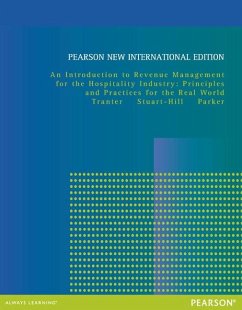
Revenue Management for the Hospitality Industry
Versandkostenfrei!
Versandfertig in über 4 Wochen
111,99 €
inkl. MwSt.

PAYBACK Punkte
56 °P sammeln!
This is the first text that has been developed specifically to examine what revenue managers in the hospitality industry must know and do to be successful. Numerous cases and practical examples are used to illustrate revenue management concepts.












